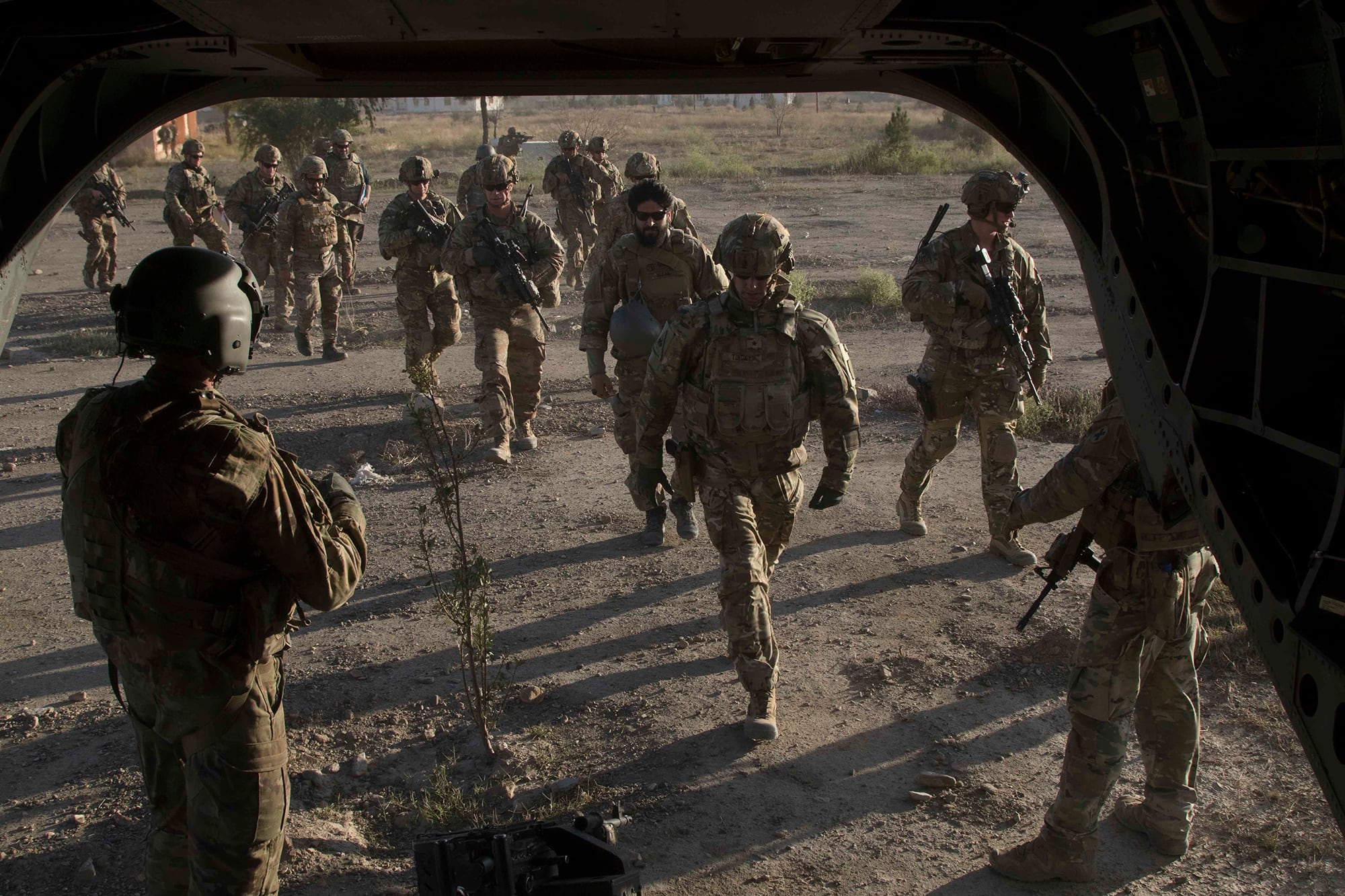WASHINGTON ― President Joe Biden’s announcement that the 2,500 U.S. forces in Afghanistan will come home by Sept. 11 drew a mixed reaction from lawmakers on Capitol Hill, with mostly Republican critics warning the country would again become a launchpad for terror attacks.
“The United States entered Afghanistan as a result of 9/11, and it is irresponsible to leave when conditions on the ground would lead to a civil war in Afghanistan and allow the country to become a safe haven for terrorists once again,” Sen. Jim Inhofe, R-Okla., ranking member of the Senate Armed Services Committee, and Rep. Mike Rogers, R-Ala., ranking member of House Armed Services Committee, said in a joint statement.
Gen. Scott Miller, the head of the American-led coalition in Afghanistan, is expected to testify before the two panels later this month.
Under an agreement signed between the Trump administration and the Taliban last year, the U.S. was to have completed its military withdrawal by May 1. Although Biden is blowing through that deadline, angering Taliban leadership, his plan calls for the pullout to begin May 1. NATO’s withdrawal will commence the same day.
“With the terror threat in many places, keeping thousands of troops grounded and concentrated in just one country at a cost of billions each year makes no sense to me, and our leaders,” Biden said in a national address to announce the plan.
Biden said that over the next few months, officials will determine “what a continued U.S. diplomatic presence in Afghanistan will look like, including how [we] will ensure the security of our diplomats.” That seemed to be an evolution from Biden’s support in September for leaving a small counterterror force of no more than 2,000.
Several prominent Democrats praised the president’s move, saying that after nearly 20 years, America’s longest war needs to end. House Armed Services Committee Chairman Adam Smith, D-Wash., argued the U.S. can monitor the threat of transnational terrorism, and that the cost of a continued troop presence outweighed the benefits.
“I also agree with President Biden that we cannot wait for the perfect security conditions before withdrawing — to do so would mean our men and women in uniform would never return home,” Smith said in a statement.
Smith acknowledged that Biden’s decision to push the withdrawal until after May avoids logistical challenges and ensures troops are safely brought home. Still, he said, it’s likely the Taliban “may increase aggression toward U.S. and coalition troops after May 1, potentially making the mission more difficult, costly, and deadly.”
Last year, Smith offered measured support when the Trump administration announced in November that the U.S. would draw down its troop levels from 3,000 in Iraq and 4,500 in Afghanistan to 2,500 in each country by Jan. 15.
Some Democrats drew a contrast between Biden’s move Wednesday and that of President Donald Trump, hailing Biden’s consultations with allies.
“Unlike the former President, who abruptly decided to withdraw from Syria and Afghanistan without consulting our allies and partners, President Biden has spoken at length with our NATO allies and other partners and met with military, intelligence, and diplomatic advisors,” Sen. Chris Coons, D-Del., a member of the Senate Foreign Relations Committee, said in a statement.
RELATED

Republican support for the move was sparse, but it included libertarian Sen. Rand Paul, R-Ky. “It’s great when we can find places to agree,” Paul tweeted. “I’m grateful President Biden is keeping President Trump’s plan to leave Afghanistan, even with a delay until fall. The time to bring our troops home is now or as soon as possible. Enough endless wars.”
But critics of the move argued the withdrawal date was arbitrary and not based on improved conditions in Afghanistan. Senate Minority Leader Mitch McConnell, R-Ky., called Trump’s withdrawal plans reckless last year and warned that Biden’s move would “surrender an entire country back to the Taliban.”
“Our president should remember what happened when the Obama administration let political considerations rush a retreat from Iraq. Chaos, and bloodshed and ISIS,” McConnell said on the Senate floor, referring to the Islamic State group.
McConnell and some other Republicans painted Biden’s decision as one in a string of weak foreign policy moves. McConnell said Biden was “surrendering leverage,” and pointed to the administration’s flat fiscal 2022 defense budget request, extension of the New START arms control treaty with Russia and its sanctions relief talks with Tehran as it seeks to restore the Iran nuclear deal.
“If this administration wants a successful legacy on the world stage, if they want accomplishments that will endure, they need to put American strength back at the center and come back to the bipartisan mainstream,” McConnell said.
Among the few Democratic critics was Senate Armed Services Committee member Jeanne Shaheen, who had long been a proponent of including women in peace talks. She said in a statement that the move “undermines our commitment to the Afghan people, particularly Afghan women.”
“I’m very disappointed in the president’s decision to set a September deadline to walk away from Afghanistan,” said Shaheen, of New Hampshire. “Although this decision was made in coordination with our allies, the U.S. has sacrificed too much to bring stability to Afghanistan to leave without verifiable assurances of a secure future.”
Joe Gould was the senior Pentagon reporter for Defense News, covering the intersection of national security policy, politics and the defense industry. He had previously served as Congress reporter.







